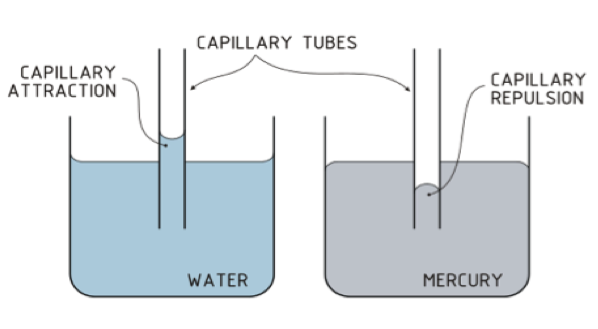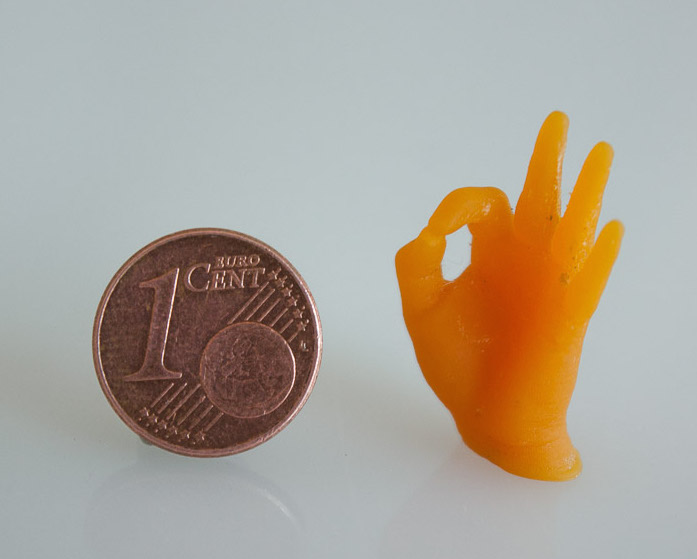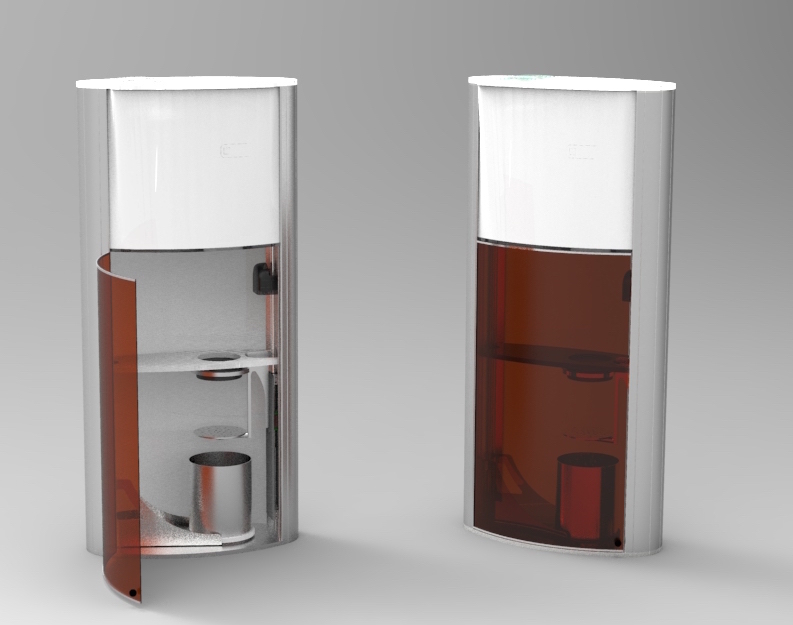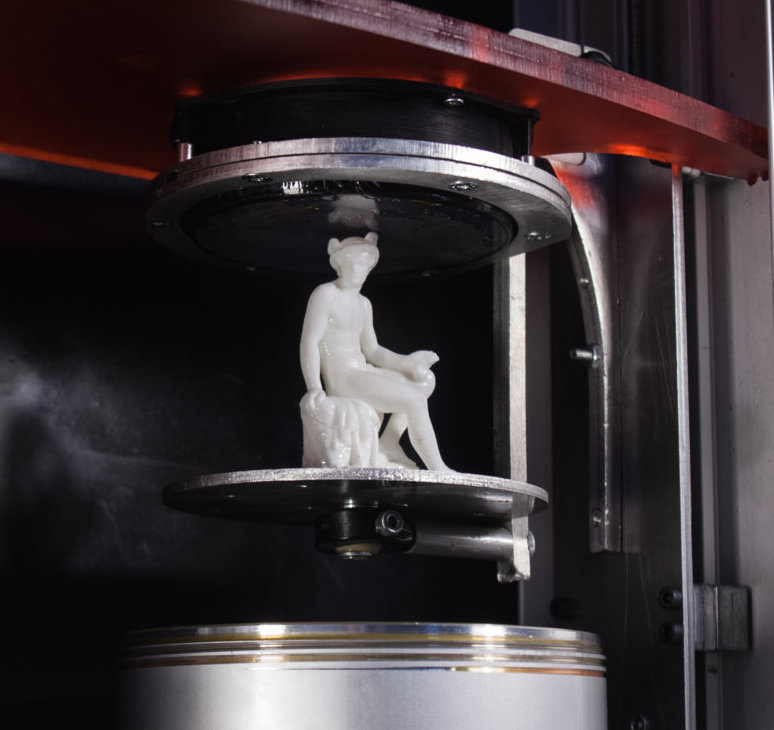
Italy-based WASP suddenly announced a new DLP-based resin 3D printing process that could shake things up in 3D printing.
WASP is well-known for their line of high quality and reliable delta-based 3D printers, which have up to now used extrusion technologies to operate. Today we see a press release from the company announcing WASP TOP DLP, a new process for 3D printing with resin they’ve developed after three years of work.
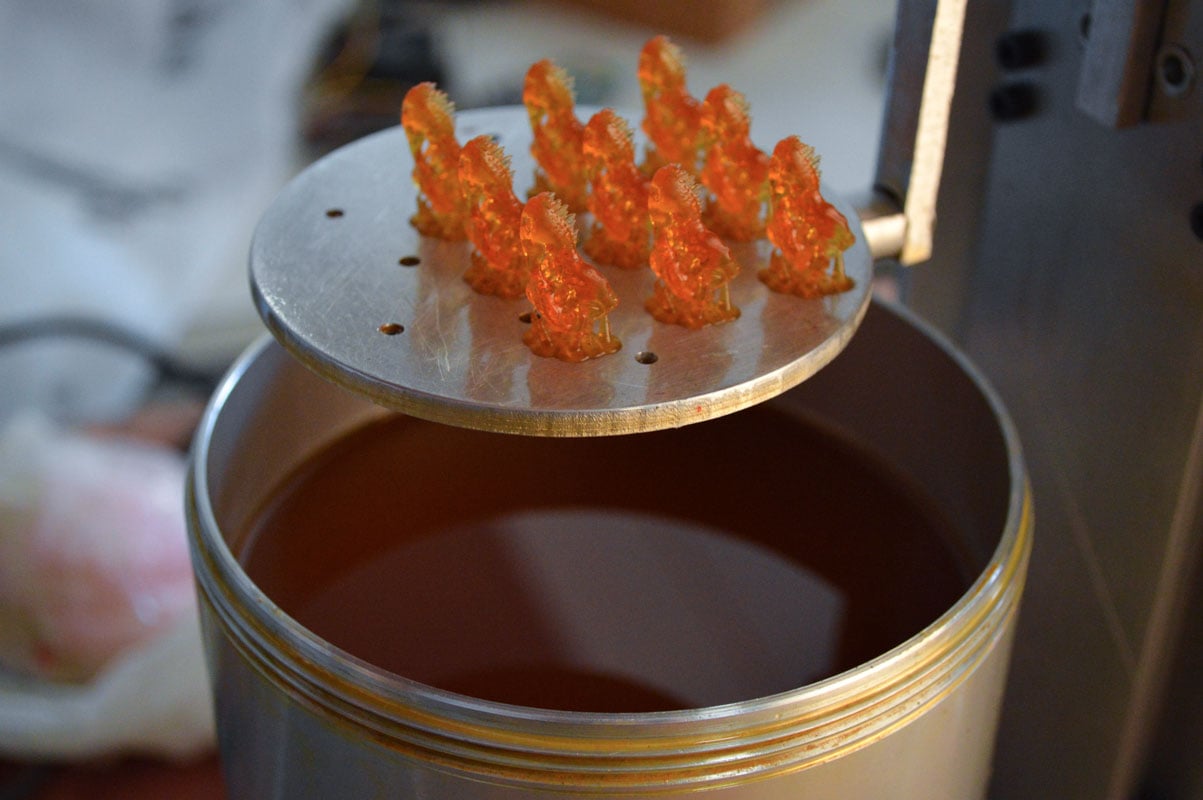
The process is called “TOP” for a simple reason: the action takes place at the top of the resin tank, as opposed to the bottom, where most other resin-based 3D printers solidify layers during printing. It’s all about how and where to shine precise ultraviolet light onto liquid resin to cause solidification.
The “bottom” approach used by so many 3D printers does work, but it has two key challenges:
- Light arriving through a transparent tank bottom solidifies the resin, but also tends to stick that solidification to the bottom of the tank! Such machines must develop ways to “peel” off the new layer, or reduce stickiness, as Carbon3D has done.
- The second problem is one of suction. When a bottom layer is solidified, it must be raised slightly to permit fresh resin to pour in for solidification of the subsequent layer. However, suction effects make for a delay as thick resin may take time to wash inwards. No one has solved this problem yet.
Meanwhile, WASP turned the problem upside down by shining light on the top surface of the resin tank instead of the bottom. This eliminates the stuck-to-the-bottom-of-the-tank problem entirely.
Other manufacturers have avoided the “top” solution because the surface of the liquid resin is subject to capillary action, where a complex geometry part may have uneven solidification if the resin creeps up or down the partial print.
However, WASP believes they have solved this problem with their new WASP TOP DLP process. They intend on releasing a 3D printer that uses the process at the Rome Makerfaire in mid-October. Take a look at these sample prints – the higher resolution is clear.
The top-style solidification approach has been seen before in larger industrial stereolithography machines, but their size likely made the capillary action issue less important.
Interestingly, they also say:
As is now its trademark, WASP presents this innovation by releasing it into the public domain for non-commercial use.
This means that we will likely see a swarm of WASP TOP DLP-based open source 3D printer kits emerging over the next year.
Via WASP


